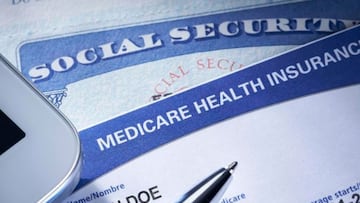What could happen to Medicare or Medicaid if the debt ceiling is not raised?
Medicare beneficiaries could see their care threatened if the country is allowed to default on its debt. What would these impacts be?

Seniors are among the most vulnerable groups if the United States defaults on its debts in early June. Both Social Secuirty and Medicare would be threatened because the government may not have enough money on hand to send monthly payments or health care providers that serve seniors.
Negotiations remain ongoing in Washington, with Republicans demanding cuts to social spending, and the White House only now beginning to soften its position. After being asked this week how he felt about adding work requirements to the eligibility criteria of government aid programs, President Biden responded that he has “voted for tougher aid programs that’s in the law now,” adding that “Medicaid” is “a different story.” He did not say additional requirements were off the table but that he was “waiting to hear what [the GOP’s] extract proposal is.” Members of the Congressional Black Caucus have come out against the implementation of additional requirements, noting that these barriers could have deadly consequences.
Providers may need to wait for payment
If an increase to the debt ceiling is not reached and the country enters a default, Medicare has a short window of time where patient care may not be distributed by the economic situation. The way Medicare is structured, the debt default will not impact seniors, in the short run, as much as it would affect providers. These providers serve Medicare (as well as Medicaid) patients under the assumption that they will be reimbursed by the federal government. However, if the government cannot make any payments because they are over the debt limit, healthcare providers may opt to cut ties with their elderly and low-income patients.
Read more from AS USA:
Greater barriers to care
Already, outlets like Axios have reported that providers may begin to turn away patients who are insured through government programs. Without a public healthcare system for civilians, the millions of people who rely on Medicare, Medicaid, or the Children’s Health Insurance Program could see greater barriers erected between them and access to quality care. Veterans who receive healthcare through the VA are protected from such risks as their healthcare system is run by the federal government. As a result, their doctors are mainly public employees.






